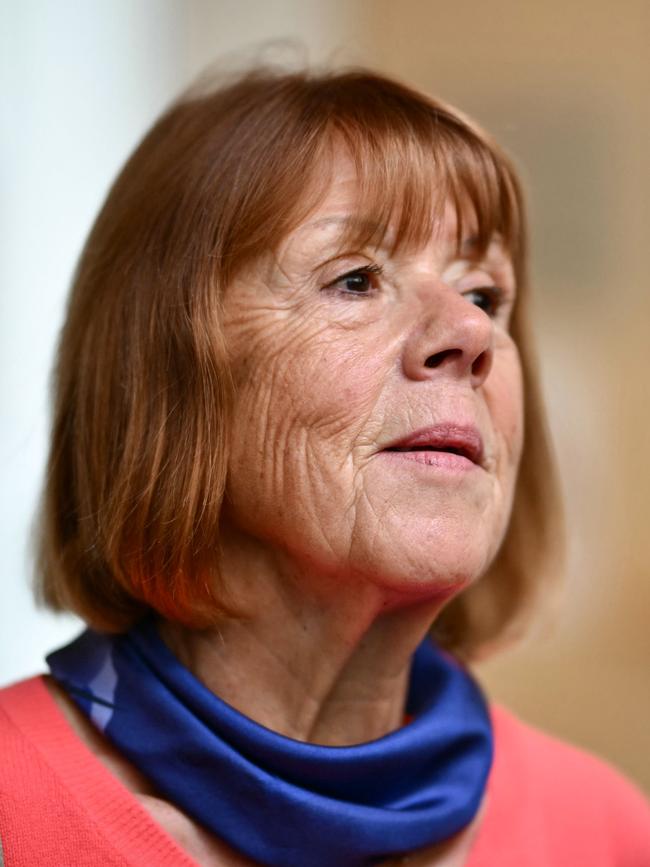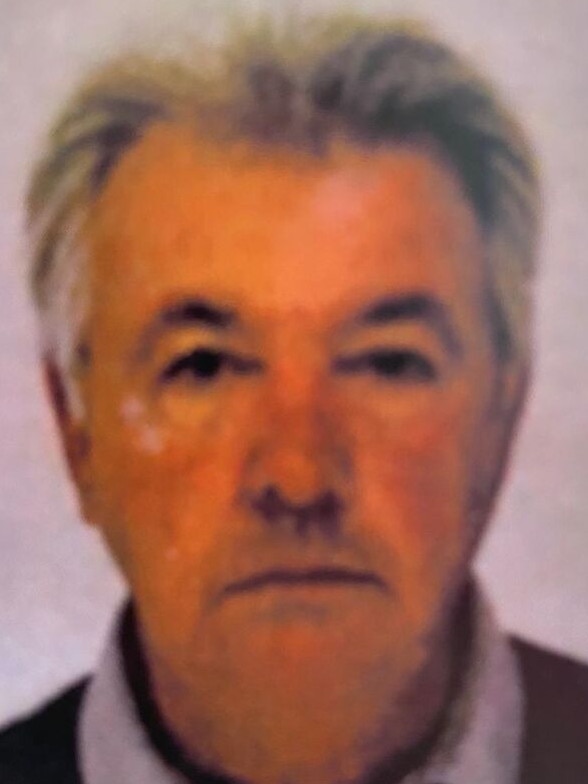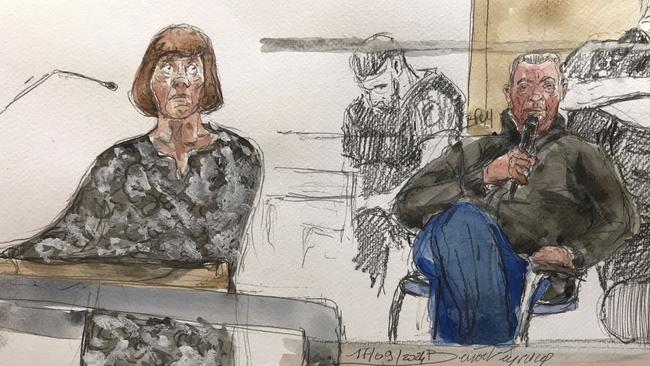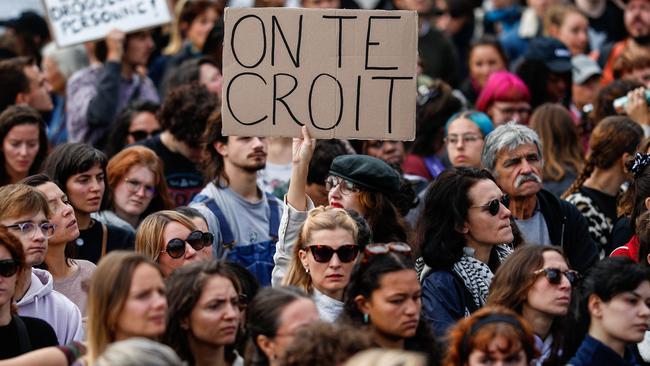‘Don’t expect these things to happen’: Disturbing truth about Gisele Pelicot case
The years of horror Gisele Pelicot endured, orchestrated by her own husband, has disturbed the world. It’s also more common than you think.
World
Don't miss out on the headlines from World. Followed categories will be added to My News.
The years of unimaginable horror Gisele Pelicot endured, orchestrated by her own husband, has disgusted the world. It’s also shockingly more common than you think.
Dominique Pelicot, 71, admitted on Wednesday to repeatedly drugging his wife, crushing powerful sleeping pills into her food and drinks to render her unconscious, then inviting dozens of strangers to rape her.
Ms Pelicot was treated “like a rag doll, like a garbage bag”, not only by her husband, but by the well more than 50 men he recruited online between 2011 and 2020 to come to their home in Mazan, a small town in the south of France, and assault his wife while she lay “comatose”.
“I was sacrificed on the altar of vice,” she told the court in Avignon, France.
The 72-year-old has waived her right to anonymity in the trial – set to continue until December – to “raise awareness” and ensure “events like these never happen again”.
“I speak for all women who are drugged and don’t know about it,” she has said.
“I do it on behalf of all women who will perhaps never know.”
The case is one of the most extreme instances of drug-facilitated sexual assault (DFSA) the public has ever seen. Our “shocked reactions” to it, University of Melbourne Associate Professor Laura Tarzia told news.com.au, “certainly suggest that people don’t expect these things to happen to women in their own homes”.


“I think when most people think of drug-facilitated sexual assault they think of a stranger or casual acquaintance slipping a date-rape drug into an unsuspecting woman’s drink,” Dr Tarzia, who is also co-lead of the Sexual and Family ViolencE (SAFE) program, said.
“There is very little awareness in the community that an intimate partner might do something like this.”
A study published in the UK last year, titled The Use of Chemical Control Within Coercive Controlling Intimate Partner Violence and Abuse, included testimony from 37 victim-survivors – more than half of whom said their current or former partner had used (or tried to use) substances “in order to make them do something they did not want to do” regarding sex.
While similar research is not available in Australia (creating a “huge gap in our understanding of sexual assault within intimate partner relationships”), the University of Sydney’s Siobhan O’Dean pointed to police data on the prevalence of drink spiking from 2004. Of the third of instances that involved sexual assault, 32 per cent of these assaults occurred in the victim or offender’s home.
“The truth is, a lot of these assaults happen in places where the victim actually knows the person, and in places they should feel safe,” Dr O’Dean, who is a postdoctoral research fellow at The Matilda Centre for Research in Mental Health and Substance Use, told news.com.au.

“Extreme” cases of DFSA like Ms Pelicot’s – involving long-term abuse and systematic planning – are “rare”, Dr O’Dean said. What is “unfortunately more common than many people realise” is the rate of sexual violence committed by an intimate partner.
Per the Australian Institute of Health and Welfare’s most recent Personal Safety Survey, 11 per cent of women reported experiencing sexual violence at the hands of an intimate partner since the age of 15. A figure that is “even more concerning”, Dr O’Dean said, is that a third of women hospitalised for sexual assault named their intimate partner as the perpetrator.
Victim-survivors “experiencing sexual violence in their own homes, at the hands of a person who is supposed to love them” is a conversation Australia is having “not nearly enough”, Dr Tarzia said.
“Women themselves often don’t realise that what they are experiencing in their relationship is ‘sexual violence’,” she added.
“They often think it is an issue of a mismatched libido or that there is something medically wrong with them for not enjoying the sexual acts their partner is forcing them to engage in (and the perpetrator of course reinforces those ideas).”
In Dr Tarzia’s research, victim-survivors have described a “wide variety” of different types of sexual violence committed by their partners, “including through the use of alcohol and substances”.
“Having said that, this probably isn’t one of the more common tactics used by perpetrators, only because in many cases they don’t need the alcohol or substances to compel their partner to have sex – they are already using psychological abuse, blackmail, fear and control and physical force to get what they want,” she explained.
All sexual violence is harmful, Dr Tarzia said, but there are “additional layers” when its perpetrated by an intimate partner – “a deep sense of betrayal, feelings of dehumanisation and self-blame that make it really hard for women to disclose what has happened to them”.
As Ms Pelicot told the court, she “couldn’t imagine (for) even one second that he could have committed acts of rape”, adding that she “trusted this man entirely”.
“I loved this man for 50 years. I would have sacrificed my own two hands for him,” she said.
The trauma of intimate partner sexual assault is further compounded if – and when – victim-survivors do choose to disclose their experience.
“They’re often not believed because the sexual violence happens in private and there is usually little by way of ‘evidence’,” Dr Tarzia said.

Even in Ms Pelicot’s case, where explicit images and footage taken by her husband without her knowledge have been presented as evidence of his crimes, she has “felt humiliated while I’ve been in this courtroom”.
“I have been called an alcoholic, a conspirator of Mr Pelicot,” she said.
“In the state I was in, I absolutely could not respond. I was in a comatose state; the videos show that.”
Both Dr Tarzia and Dr O’Dean stated the “critical” necessity of raising awareness in the community, as well in legal and health settings, about intimate partner sexual assault.
While “important”, Dr O’Dean stressed this was “not enough”.
“We need increased funding for services and research to collect up-to-date Australian data that can inform prevention efforts,” she added, “and drive meaningful change for women’s safety and wellbeing.”
More Coverage
Originally published as ‘Don’t expect these things to happen’: Disturbing truth about Gisele Pelicot case





